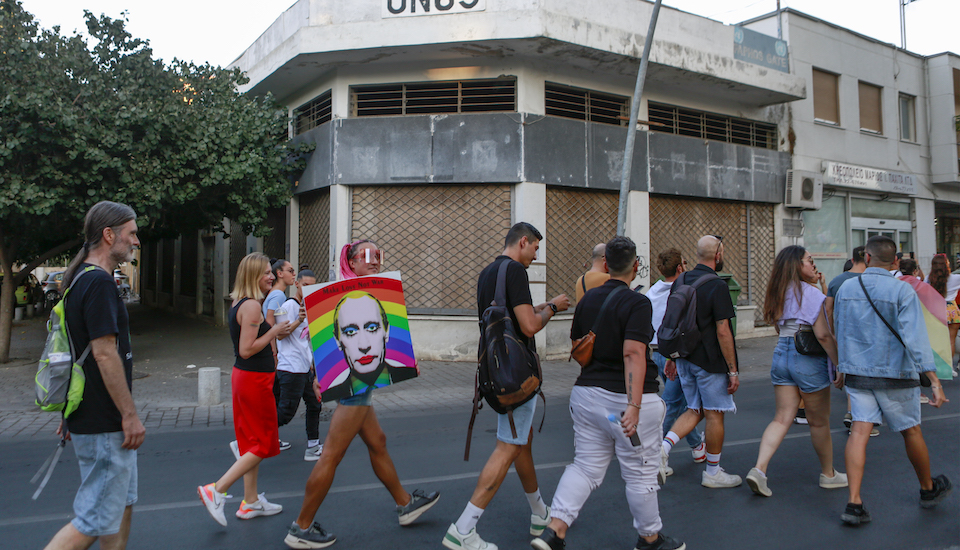A transatlantic relationship rooted in action and impact
Since 2017, the RSA has been working in two cities – Pittsburgh and Glasgow – to develop a vision for the role that post-industrial cities could play in creating the economies and societies of the 21st century. From positions of industrial strength, both cities have experienced the harsh impact of decline as jobs dried up, traditional industries moved or lost relevance, and issues of population loss, social deprivation and health inequalities became synonymous with their public and political profiles.
Many cities have struggled to reinvent themselves in light of these types of challenges, but the renaissance in both has been a combination of recognising and cherishing the heritage they possess and opening up to new industries and economic opportunities. Glasgow is now a leading centre for satellite design and manufacture, helping to drive Scotland’s growing space sector, while Pittsburgh is now routinely lauded as one of the most liveable cities in the US, with a blossoming tech sector fuelled by world-leading research in areas such as artificial intelligence attracting new residents from across the world.
In 2018, leadership from the RSA in the UK and US joined city leaders in Pittsburgh for the city’s first Future of Work summit. This led to a Sister City Agreement between the two cities in 2020. This agreement is not a traditional twinning relationship, but is predicated on the desire, as expressed by former Mayor Bill Peduto of Pittsburgh and Councillor Susan Aitken, Leader of Glasgow City Government, for the connection to be rooted in action and impact.
Glasgow and Pittsburgh both continue to play a transformative part in the global clean energy transition. Glasgow was on the global stage in 2021 when the city hosted the world at COP26, where leaders crafted a formative discussion that led to recent advancements this year at COP27.
Meanwhile, alongside hosting the Global Clean Energy Action Forum, Pittsburgh and the Upper Appalachian and Ohio River Valley region were at the epicentre of the Biden administration’s delivery of the Inflation Reduction Act and the Infrastructure Investment and Jobs Act, two of the most consequential investments in climate action in US history. The dialogue and policy advocacy calling for a “clean economy for all” and the need to support the transition of workers and communities whose livelihoods are rooted in the fossil economy, was driven by local leadership and is unmistakably at the core of the Biden administration’s policy victories.
As cities like Glasgow and Pittsburgh pivot from education and advocacy related to the perils (and opportunities) of the climate crises, a new focus on program delivery and project execution must take shape... and fast.
The pandemic, local political transition, labour shortages and commodity price increases caused by exogenous shocks and shifting supply chains come at a perilous time when considering the need to act on climate. Cities and private sector collaborators from the finance, energy and construction industries must come together to create the infrastructure delivery models needed to advance the intents of the clean energy economy advocacy and planning.
The next phase of the transition requires execution of four key actions. First, cities must commit and leverage their existing budget resources towards their identified climate actions. Creating a climate ‘plan’ is not enough. Utilization of existing financial resources is the first step in attracting the additional private and public capital necessary to meet ambitious emissions reduction targets or mitigate the negative implications of future climate-borne expenses.
Second, greater attention needs to be given to the creation of ‘climate delivery teams’ inside of city governments. Expecting the ‘normal’ functions of government operations alone to provide the actions required to meet the climate challenge is short-sighted and will result in operational paralysis.
The public and private sectors must align to form a new area of public –private partnership
Third, the public and private sectors must align to form a new area of public–private partnerships. Byzantine public procurement and contracting practices designed for a foregone era impede (and in many cases grind to a halt) the design and delivery of cost-effective infrastructure and construction solutions.
Finally, policy, procurement and permits are logical starting points for cities in their effort to address longstanding inequalities and the climate challenge concurrently. These ‘three Ps’ represent the ability of cities to utilise existing powers and contexts to drive new change. Such changes are core to the foundation of our need to build more just and inclusive outcomes, while concurrently reducing the consumption of carbon and protecting our people from climate-borne risks that threaten both health and economic sustainability.
As explored by Tom Stratton in Issue 4 2022 of RSA Journal, the Society is currently driving the work of the UK Urban Future Commission, seeking to unlock the potential of cities across the UK. Our experiences with the cities of Glasgow and Pittsburgh show that this work has relevance across the globe, and that the Commission can and should be learning from experiences in other countries and the central place of our cities in creating a truly regenerative future.
Grant Ervin FRSA is Director of Environmental Social Governance and Innovation at S&B USA Construction
Lolita Jackson FRSA MBE is Executive Director of Communications & Sustainable Cities at SDCL
Jamie Cooke FRSA is Head of Fellowship Engagement (Nations and Regions) at the RSA
This article first appeared in the RSA Journal Issue 1 2023.
Related articles
-
Young at heart
Journal
Jonathan Prosser
Becoming a nation with children at its centre in 10 courageous steps.
-
Open RSA knowledge standards
Blog
Alessandra Tombazzi Tom Kenyon
After investigating ‘knowledge commons’, we're introducing our open RSA standards and what they mean for our practice, products and processes.
-
Worlds apart
Comment
Frank Gaffikin
We are at an inflexion point as a species with an increasing need for collaborative responses to the global crises we face.






Be the first to write a comment
Comments
Please login to post a comment or reply
Don't have an account? Click here to register.